
Advice to Coaches:
Help Players Embrace Immediate Correction
July 1, 2019
Learning a skateboarding trick has a huge (but frustrating) advantage: instant corrective feedback. Take the kick-flip trick for example. You can't almost do it. You really can't even do it wrong. You either land it or you don't. Learning it usually takes hours and hours of unsuccessful attempts. Thousands of attempts that you immediately know are unsuccessful. It looks something like this:

Instant Feedback in Basketball Skills Training
Most basketball moves aren't like the kick-flip. Tell a kid to do a crossover and they'll do it. But it can be done too slow, too fast, too high, too wide, too predictably, etc. And if you don't point it out, most young players would never know. Immediate correction in skills training means to stop the rep as soon as the mistake occurs. Something I've learned over years of teaching moves: the quicker and more specific the correction, the better. Proceed with caution, however. Instant correction can be very frustrating for players (especially young players).
Take the below example. While developing the "Iverson" crossover, we were working specifically on delaying the eye/head fake until the same time as the second foot fake (i.e. not having the eyes look too early to his right and tip off the defense). Here are two examples of when I saw the eyes go early. I immediately stop the rep and let him know what he did. It seems harsh, but my players know and trust my process and take pride in their own perfection. You can see he goes right back to the start to try again:
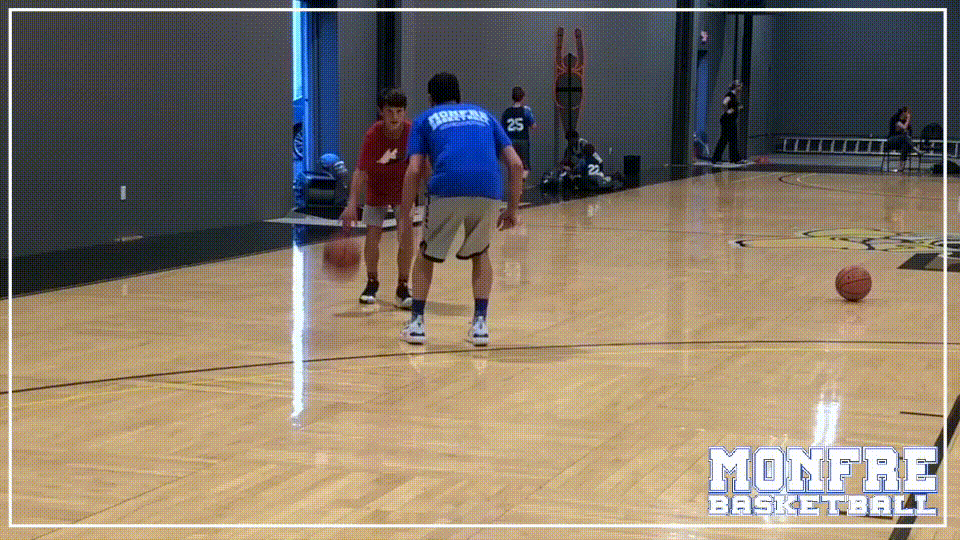
Below we see a correct repetition of the eye/head fake. The result when he gets it right is a much more deceptive, effective fake. He got there because I wouldn't let him finish the move unless he got it right.
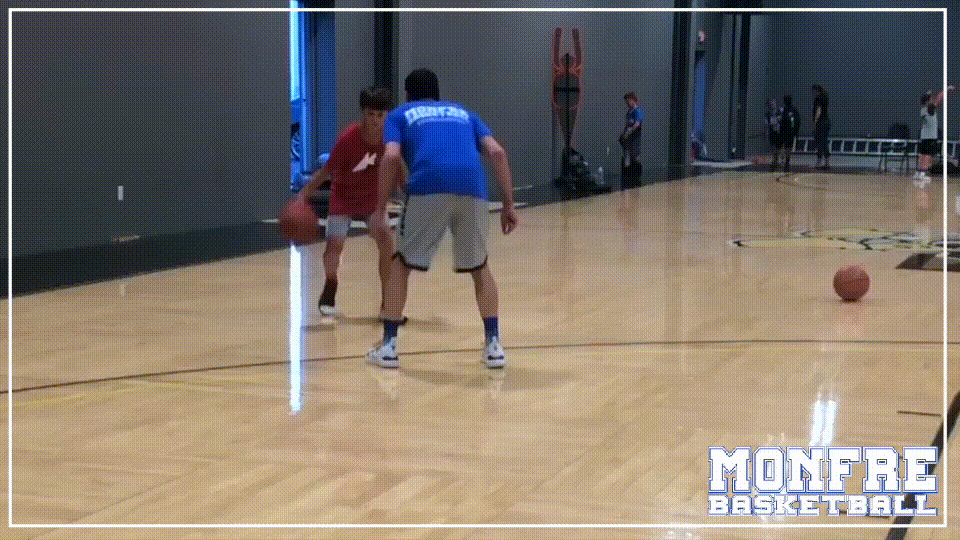
Encourage Self Correction
I never stop a rep early without an explanation. Players must understand the correction. Eventually, players are able to embrace immediate self correction when they recognize a mistake. Take the same move as an example. At this point we were working on having both foot fakes happen with the ball "loaded" in his hand. When he feels the ball slip out of his hand prior to completing the two foot fakes, he instantly stops. He recognizes, he stops, and he immediately resets. After watching the self corrections below watch the successful rep above again to see he eventually gets it right and how it adds to the efficiency of the move.
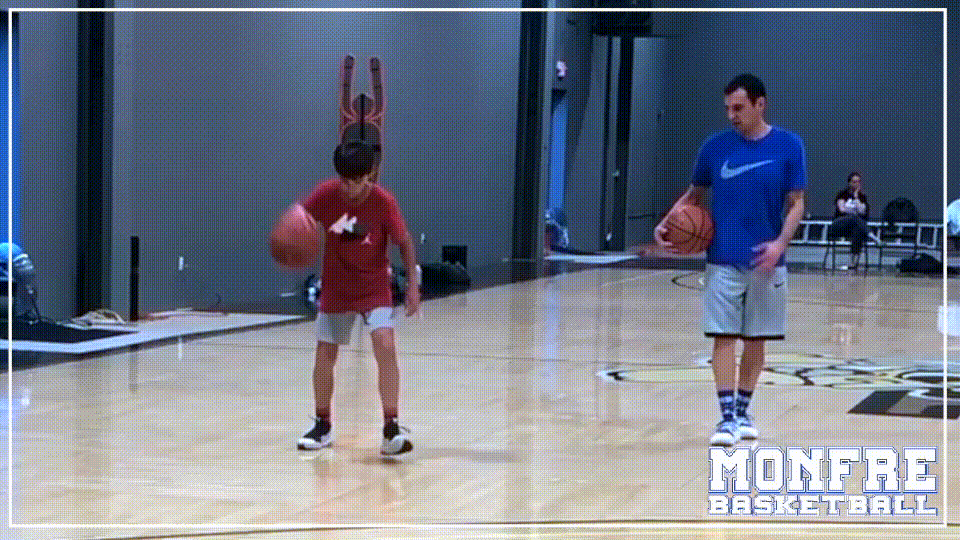
The Pay Off
Here is the best part of this dynamic. Successfully doing something difficult after multiple (and sometimes many) failed attempts is an absolutely awesome feeling. Take these kids who were lucky enough to capture their reaction when they finally landed their very first kick-flip:
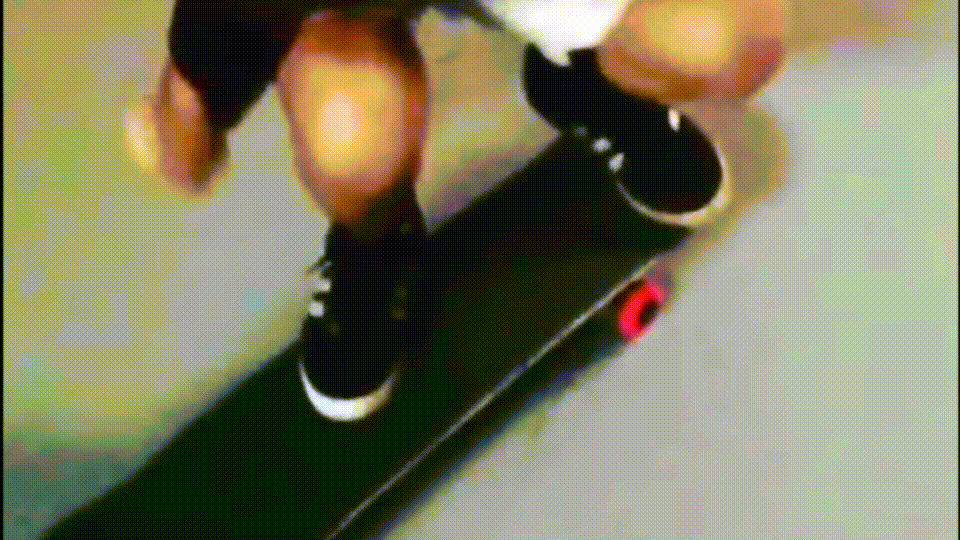
You won't get quite the same emotions from finally conquering a difficult basketball move, but it's not far off. If a player puts in hundreds of reps (many with immediate correction), I guarantee there will be a strong sense of satisfaction the first time they beat a live defender with it. That emotion is a powerful motivational tool, and it can't be artificially created. Here you can see my player finally pull out that move successfully in our live 1 on 1 session...followed by me telling him the video will never see the light of day:
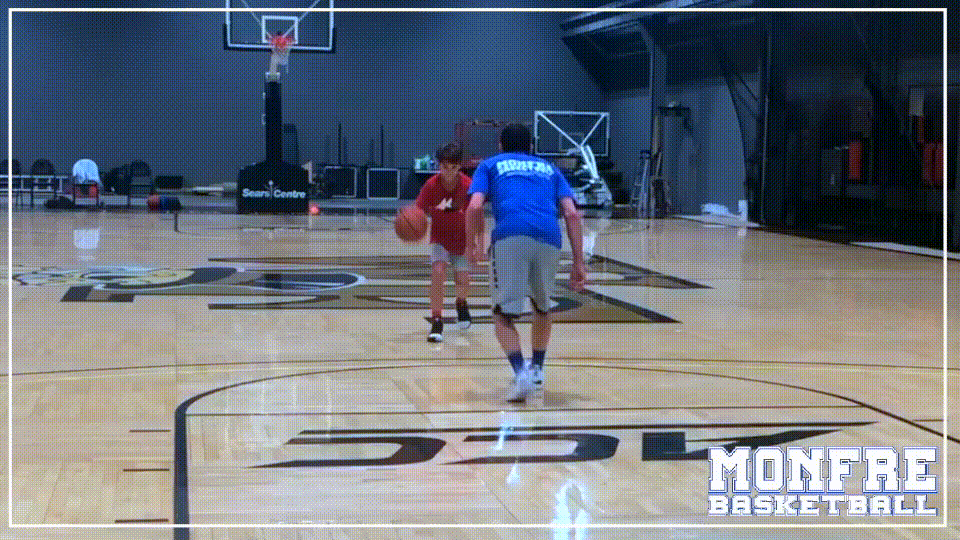
You can't see his face, but I assure you it was full of confidence and pride. Creating opportunities for individual moments of earned success are pivotal to boosting confidence and inspiring young players to put in even more time on their own. And to think I used to hate getting beat on defense...
Coaching Tips For Using Immediate Correction:
-
Explain to your players the importance of immediate correction during skill work and to expect a level of frustration. Challenge them to overcome their frustration with focused hard work.
-
Encourage self-correction and praise them when it happens.
-
Start with simple, isolated concepts (ex: coming to a complete stop during a hesitation move). Build to more complex moves in which you stop the rep if they do any of the previously taught elements incorrectly. Avoid this type of accountability for concepts you haven't taught yet.
-
If you find yourself stopping reps more than 3 times in a row, try a different way of explaining or drilling the concept (ex: try the footwork without the ball, slow the move down, etc.).
-
Avoid using this approach in group settings unless all the players know each other well. You lose the trust of young players quickly if you embarrass them in front of their peers (even unintentionally).


